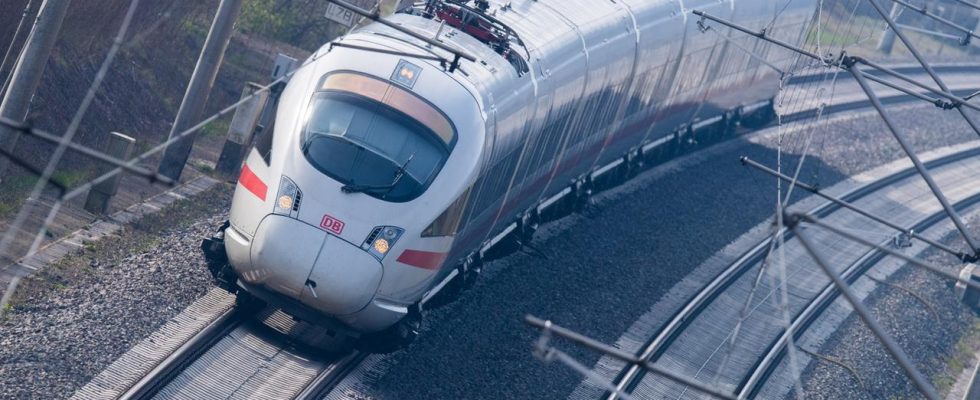exclusive
This summer, thousands of rail passengers were often stuck for hours on trains without working air conditioning because, among other things, the power went out. research by Report Mainz show problems in the emergency management of Deutsche Bahn.
It is a warm Sunday in June when journalist Sabine Kinkartz boards the ICE in Leipzig. The train is very crowded. Suddenly the train stops in the middle of the Saale-Elster Bridge, 21 meters above the ground. Sabine Kinkartz and 800 other passengers are trapped. Without ventilation and air conditioning, it got very hot very quickly, says Kinkartz: “And then people turned around in front of me and said someone was lying on the floor back there. And if someone collapsed there, then you know you can too happen.”
Report Mainz Various internal logs of Deutsche Bahn were passed on. Also the log for the ICE journey described above. At 4:20 p.m., the train driver noted: “The temperature on the train can no longer be endured by the passengers. Two passengers are already on the verge of a circulatory collapse.” The control center then wrote: “The situation on the train is very tense and the train crew can no longer control it.” In the end, it takes about five and a half hours for the complete evacuation.
No official stats too train evacuations
According to research by Report Mainz, train evacuations on open routes in Germany do not have to be reported. This is confirmed by the Federal Railway Authority as the responsible supervisory authority. For figures, it refers to the railway companies themselves.
When asked, Deutsche Bahn AG said that 0.004 percent of train journeys would lead to evacuations on the open route. A seemingly infinitesimal number. But around 39,000 passenger trains roll on the German rail network every day. Every day, an average of 1.56 trains remain stranded somewhere on the open route that have to be evacuated – an average of 47 trains per month.
Danger to life for stranded train passengers
Professor Markus Hecht from the Technical University of Berlin takes a critical view of this: “If there is a danger to life and limb, then you have to react, even if there were no victims.” A broken-down train on the open route can quickly become dangerous for passengers, especially when there is no power supply.
“If the ventilation in the vehicles fails, a lot of CO2 is produced. And there is actually a risk of suffocation because the windows in modern trains cannot be opened and there is no longer any air exchange. People can then easily panic,” explains Hecht. An escape to unsecured tracks poses a risk of death from electric shock or a collision with a train on the opposite track.
Emergency managers often later on site than required
In order to avoid such dangers, a so-called emergency manager from Deutsche Bahn must be present at every train evacuation in Germany. Its task is to switch off the power on the overhead line and to secure the track systems. According to the DB rules, this should be available “after a maximum of 30 minutes” at the place of use, but research by Report Mainz show that it often takes longer.
This is confirmed by Thomas Egelhaaf, state fire director and member of the committee of the conference of interior ministers on fire department matters and civil protection: “The desire is constantly being expressed to work towards ensuring that these 30 minutes, which are included in the concepts, are also set as the maximum value.” It turns out that in many cases the times are exceeded. And: as long as the emergency manager is not on site, the fire brigade and police are not allowed to start with evacuation measures.
“Criticized evacuation cases” are checked
Andreas Büttner has been observing an accumulation of evacuations in his state for months. The traffic policy spokesman for the left-wing faction in Brandenburg therefore demanded clarification from the state government. He does not get concrete information about the numbers. “This shows again what crazy situations we are in. Human lives are in danger and nobody reports anything. Nobody keeps any statistics and nobody is able to provide any information.”
Officially, it seems that cases of train evacuations are now being dealt with. When asked, the Federal Ministry of Transport announced: “The Federal Railway Authority’s supervisory authority is currently investigating specific, possibly questionable evacuation cases as part of administrative procedures.” Because of the “ongoing proceedings”, the Federal Railway Authority does not want to provide any further information.
You can see more on this and other topics at 9:45 p.m. at Report Mainz in the first.

